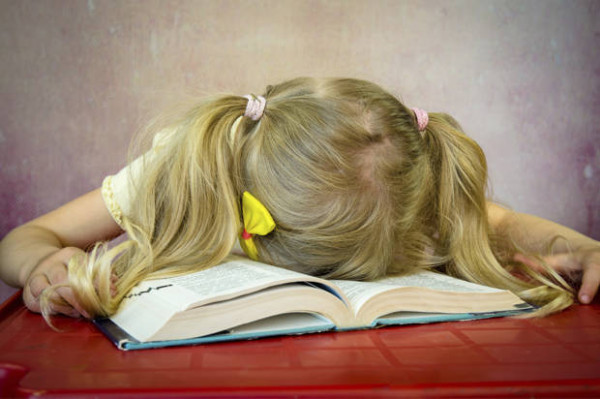
“There is no evidence that any amount of homework improves the academic performance of elementary students.”
This statement, by homework research guru Harris Cooper, of Duke University, is startling to hear, no matter which side of the homework debate you’re on. Can it be true that the hours of lost playtime, power struggles and tears are all for naught? That millions of families go through a nightly ritual that doesn’t help? Homework is such an accepted practice, it’s hard for most adults to even question its value.
When you look at the facts, however, here’s what you find: Homework has benefits, but its benefits are age dependent.
For elementary-aged children, research suggests that studying in class gets superior learning results, while extra schoolwork at home is just . . . extra work. Even in middle school, the relationship between homework and academic success is minimal at best. By the time kids reach high school, homework provides academic benefit, but only in moderation. More than two hours per night is the limit. After that amount, the benefits taper off. “The research is very clear,” agrees Etta Kralovec, education professor at the University of Arizona. “There’s no benefit at the elementary school level.”
Before going further, let’s dispel the myth that these research results are due to a handful of poorly constructed studies. In fact, it’s the opposite. Cooper compiled 120 studies in 1989 and another 60 studies in 2006. This comprehensive analysis of multiple research studies found no evidence of academic benefit at the elementary level. It did, however, find a negative impact on children’s attitudes toward school.
This is what’s worrying. Homework does have an impact on young students, but it’s not a good one. A child just beginning school deserves the chance to develop a love of learning. Instead, homework at a young age causes many kids to turn against school, future homework and academic learning. And it’s a long road. A child in kindergarten is facing 13 years of homework ahead of her.
Then there’s the damage to personal relationships. In thousands of homes across the country, families battle over homework nightly. Parents nag and cajole. Overtired children protest and cry. Instead of connecting and supporting each other at the end of the day, too many families find themselves locked in the “did you do your homework?” cycle.
When homework comes prematurely, it’s hard for children to cope with assignments independently—they need adult help to remember assignments and figure out how to do the work. Kids slide into the habit of relying on adults to help with homework or, in many cases, do their homework. Parents often assume the role of Homework Patrol Cop. Being chief nag is a nasty, unwanted job, but this role frequently lingers through the high school years. Besides the constant conflict, having a Homework Patrol Cop in the house undermines one of the purported purposes of homework: responsibility.
Read More











Sign up on lukeunfiltered.com or to check out our store on thebestpoliticalshirts.com.